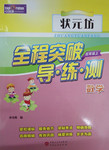题目内容
【题目】Perhaps every old generation since ancient times has complained about young people, and today is no different. Isn’t it clear that compared with our glorious selves, kids these days are self-absorbed social network addicts?
However, this summer, my impression of today’s kids has been restored by the story of Rachel Beckwith. She could teach my generation a great deal about maturity and unselfishness — even though she’s just 9 years old, or was when she died on July 23.
At age 5, Rachel had her long hair shorn off and sent to Locks of Love, which uses hair donations to make artificial hair for children who have lost their own hair because of cancer or other diseases. After that, Rachel announced that she would grow her hair long again and donate it again. And that’s what she did.
Then when she was 8 years old, her church began raising money to build wells in Africa through an organization called charity: water. Rachel was astonished when she learned that other children had no clean water, so she skipped her ninth birthday party. Rachel set up a birthday page on the charity: water website with a target of $300. Instead of presents, she asked her friends to donate $9 each to charity: water. Finally Rachel raised only $220 — which had left her just a bit disappointed.
Then, on July 20, a serious traffic accident left Rachel critically injured. Church members and friends, seeking some way of showing support, began donating on Rachel’s birthday page — charitywater.org/Rachel — and donations reached her $300 goal, and kept rising.
But Rachel couldn’t hear that she had raised beyond the $47,544 that the singer Justin Bieber had raised for charity: water on his 17th birthday. “I think Rachel would have been overjoyed for she secretly had a crush on (迷恋) him,” Rachel’s mom said.
When it was clear that Rachel would never regain consciousness, the family decided to remove the life support system. Her parents donated her hair for the final time to Locks of Love, and her organs to other children.
Word about Rachel’s last fund-raising spread. Contributions poured in, often in $9 each. The total donations soon topped $100,000, then $300,000.
This is a story not just of one girl, but of a young generation of outstanding problem-solvers working creatively.
【1】What does the author think of today’s kids after he knew the story of Rachel Beckwith?
A. They are good at social network.
B. They are unselfish as grown-ups.
C. They can get problems settled effectively.
D. They have narrow minds and care about nothing.
【2】When was it that Rachel’s hair was donated for the final time to Locks of Love?
A. At her age of 5.
B. After her death.
C. Right after the traffic accident.
D. Before her ninth birthday.
【3】Why did each of Rachel’s friends donate $9 to charity: water?
A. Because she had asked them to do that.
B. Because she set up her birthday page on June 9th.
C. Because she began to raise money from her ninth birthday.
D. Because she died at the age of 9 and they wanted to honor her.
【4】The singer Justin Bieber was mentioned in the text, mainly because ______.
A. Rachel collected more than him who she admired
B. he had donated on Rachel’s page on his 17th birthday
C. Rachel would have been overjoyed for his donation
D. Rachel’s mom said she secretly had a crush on him
【5】What does the text mainly talk about?
A. Rachel’s hair donations.
B. A kind girl, Rachel.
C. The author’s impression of today’s kids
D. A lesson from Rachel.
【答案】
【1】C
【2】B
【3】A
【4】A
【5】B
【解析】试题分析:文章通过一个善良的女孩子的慈善行为告诉我们新一代的年轻人也是非常有爱心的,也是非常有希望的。
【1】C推理题。根据文章所讲述她捐头发,筹集资金为非洲人打井等等行为说明她是一个热心肠的人。根据文章可知ABD都是错误的。
【2】B词义辨析题。根据下文Instead of presents, she asked her friends to donate $9 each to charity可知她放弃为自己举办生日聚会。而是为这一慈善组织建立了一个网页来筹集资金。
【3】A细节题。根据第4段第4行内容Rachel set up a birthday page on the charity: water website with a target of $300.
【4】A推理题。根据文章最后一段内容尤其是outstanding problem-solvers working creatively. 可以推断作者对于年轻的一代是非常欣赏的。
【5】B主旨大意题。文章通过讲述这个善良的女孩子的慈善行为告诉我们新一代的年轻人也是非常有爱心的。A项所讲Rachel’s last fund-raiser 更能表达这个主题。要特别注意B项,概括性不够。

 状元坊全程突破导练测系列答案
状元坊全程突破导练测系列答案 直通贵州名校周测月考直通名校系列答案
直通贵州名校周测月考直通名校系列答案